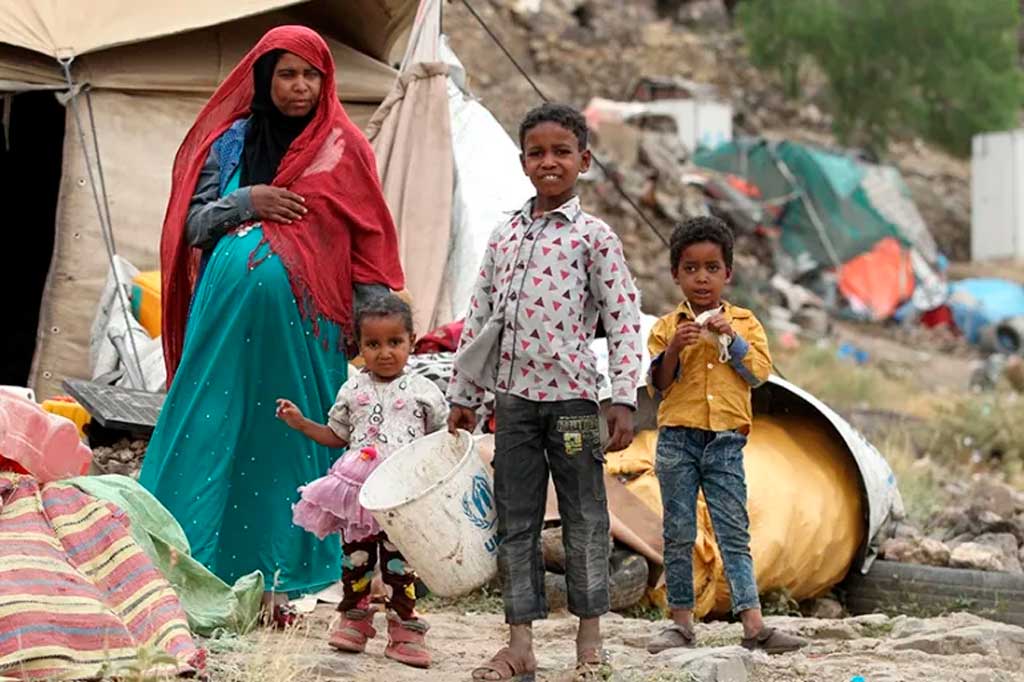By Roberto Castellanos
Chief correspondent for Prensa Latina in Egypt
Although it is still too early to celebrate peace, there have been important events this year that have made people excited about the future.
The dialogue between the rebel group Ansar Allah (known as the Houthi movement) and Saudi Arabia, which supports the Yemeni government, was a clear step in this direction.
In April, a Saudi delegation landed in the rebel-held Yemeni capital Sanaa to speak directly with their leaders. In September, a team from the latter visited Riyadh.
Although no agreement was reached at any meeting and both parties expressed their differences, they established their positions and it was the first time they met since the beginning of the conflict.
Another bright spot is the maintenance of the ceasefire reached in April 2022 and respected by the parties, even if minor incidents have been reported in recent months.
Several developments this year gave cause for optimism, including the prisoner exchange brokered by UN special envoy Hans Grundberg and the Red Cross and the resumption of flights to and from Sanaa, which were suspended in 2016.
The lifting of sea and air blockades of Houthi-controlled areas allowed access to essential products for millions of civilians, including food and fuel.
The evacuation of more than a million barrels of oil from the rusty ship Safer off the country's coast was another step in the right direction and prevented a major ecological disaster.
However, it is still too early to imagine a peaceful solution that would allow the Houthis and the executive branch recognized by the international community to share power.
The latter is represented by a collegial leadership called the Presidential Leadership Council, which is made up of several key figures in Yemen.
After years of struggle, death and mistrust, much work remains to achieve elusive peace in this impoverished country, where more than two-thirds of its residents need international help to survive.
CRITICAL HUMANITARIAN SITUATION
Both the UN and various non-governmental organizations welcomed these positive signals to ease the humanitarian crisis in Yemen, the poorest country on the Arabian Peninsula.
Recently, the NGO Save the Children warned that humanitarian aid to this country had fallen by 62 percent in five years, a situation that endangers the lives of millions of people.
Save the Children said that in 2023, programs protecting Yemeni children received only 7.5 percent of the money needed and 9.6 percent of the total need for education.
Similar comments were made by the World Food Program, which faces a severe funding crisis for its operations in the country, which could affect 4.4 million people who rely on its food rations.
According to the United Nations, in 2023 two-thirds of Yemen's population, 21.6 million people, including 11 million children, were in need of humanitarian assistance and protection.
The International Committee of the Red Cross estimates that more than 20 million Yemenis out of a population of 31 million lack access to basic health care and 16.2 million are at risk of food insecurity.
The regional director of the United Nations Children's Fund, Adele Khodr, denounced that almost 11,000 children died or were injured in the war.
Meanwhile, the United Nations Office for the Coordination of Humanitarian Affairs estimates the number of minors suffering from acute malnutrition at 500,000.
Over a slow fire, Yemenis and regional and international actors are cooking the necessary peace for this impoverished and devastated country, where daily needs have been piling up for nine years.
arc/rob

